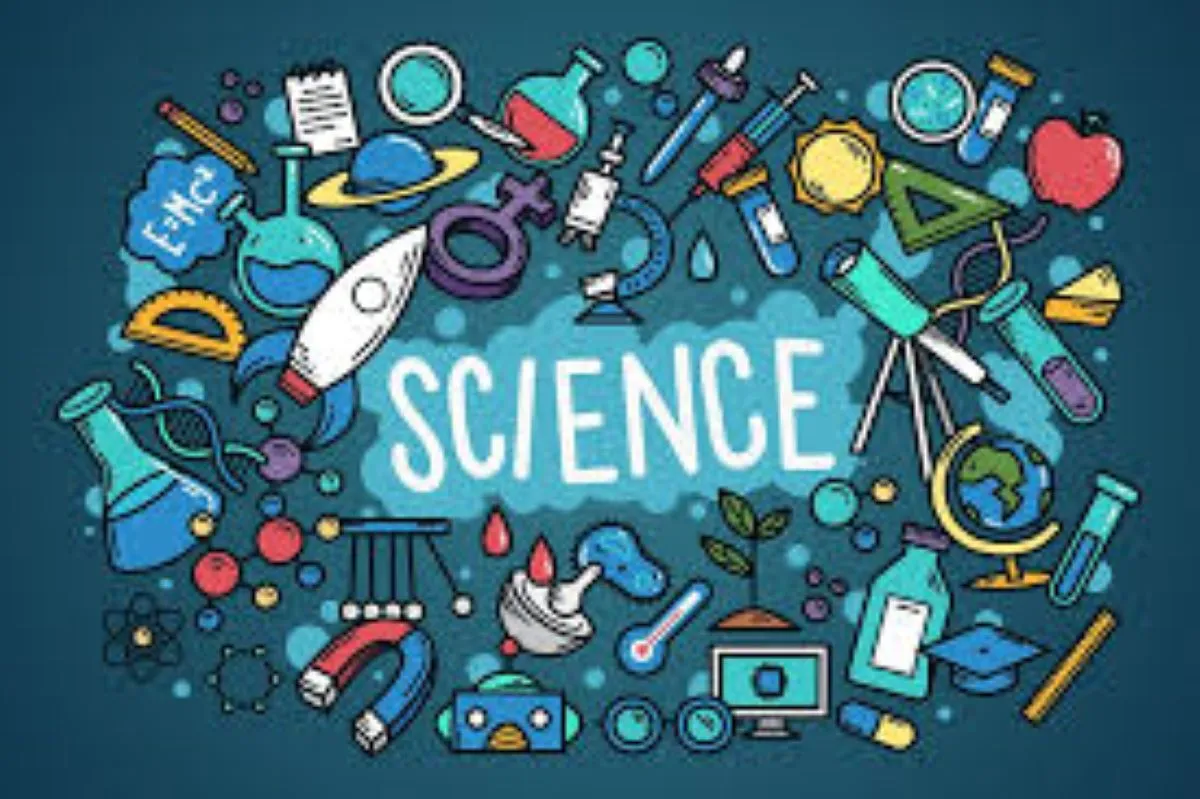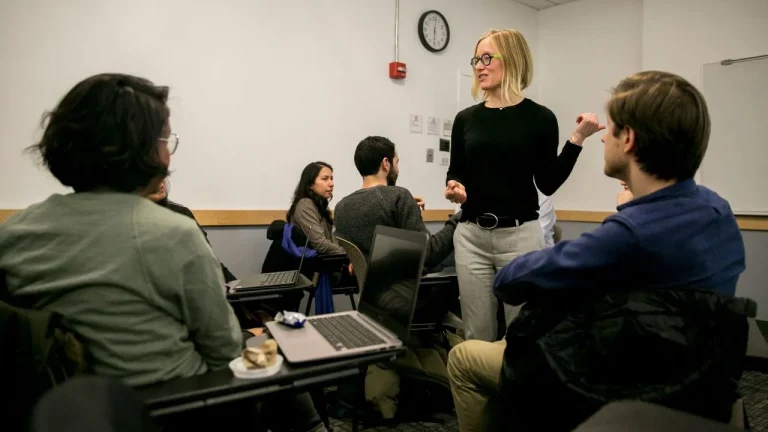Difference Between Science And Non-Science
Science has long been regarded as the epitome of rational inquiry and knowledge about the natural world. But how exactly does it differ from non-scientific fields? If you’re short on time, here’s a quick answer: Science follows a rigorous methodology of empirical observation, experimentation, and falsifiable hypotheses to draw conclusions about how nature works.
In this comprehensive guide, we unpack the key distinguishing features between science and non-science, including their foundations, methodologies, aims, and role in society.
Foundations of Science
Science is a systematic and organized approach to understanding the natural world. It is built upon several foundational principles that guide the scientific process. These principles include empiricism, rationalism, and skepticism.
Empiricism
Empiricism is the belief that knowledge is derived from sensory experience and observation. In the context of science, this means that scientific knowledge is based on evidence gathered through observation and experimentation.
Scientists use their senses and instruments to collect data, which forms the basis for their theories and conclusions.
For example, in the field of biology, scientists use microscopes to observe cellular structures and conduct experiments to understand how different organisms function. This empirical approach allows scientists to gather evidence and draw conclusions based on observable facts.
Rationalism
Rationalism is the belief that knowledge can be acquired through reason and logical thinking. In science, rationalism plays a crucial role in the formulation of hypotheses and theories. Scientists use logic and reasoning to develop explanations for observed phenomena and to make predictions about future outcomes.
For instance, in physics, scientists use mathematical equations and logical reasoning to explain the behavior of particles and predict how they will interact under different conditions. This rationalistic approach enables scientists to make sense of complex phenomena and make accurate predictions.
Skepticism
Skepticism is a critical attitude towards knowledge and claims, which is essential in the scientific process. Scientists approach their work with a healthy amount of skepticism, questioning assumptions and subjecting ideas to rigorous testing.
This skepticism helps to ensure that scientific findings are reliable and trustworthy.
For example, in the field of psychology, scientists may conduct multiple studies to replicate and validate the results of a particular experiment. This skeptical approach ensures that the findings are not due to chance or bias and can be considered valid.
By combining empiricism, rationalism, and skepticism, scientists are able to build a solid foundation for their work. These principles help to ensure that scientific knowledge is based on evidence, logical reasoning, and critical evaluation, making it a reliable and robust source of information.
The Scientific Method
The scientific method is a systematic approach used by scientists to investigate and understand the natural world. It is a process that involves several steps, each of which plays a crucial role in the pursuit of scientific knowledge.
By following this method, scientists are able to gather evidence, test hypotheses, and draw conclusions based on empirical data.
Observation and Experimentation
The first step in the scientific method is making observations and conducting experiments. Scientists carefully observe natural phenomena or conduct experiments to gather data. They use their senses or specialized equipment to collect information about the world around them.
For example, astronomers observe celestial bodies through telescopes, while chemists conduct experiments in laboratories to understand the behavior of different substances.
Hypothesis and Prediction
Once scientists have gathered enough data, they formulate a hypothesis. A hypothesis is an educated guess or a possible explanation for the observed phenomenon. It is based on existing knowledge and is testable through further experimentation.
Scientists also make predictions based on their hypothesis. These predictions help guide the design of experiments and provide a means of evaluating the accuracy of the hypothesis.
Testing and Analysis
In this step, scientists design experiments to test their hypotheses and predictions. They carefully control variables and collect data to analyze and interpret the results. Statistical analysis is often used to determine if the data supports or refutes the hypothesis.
Through repeated experimentation and analysis, scientists can refine their hypotheses and gain a deeper understanding of the phenomenon under investigation.
The scientific method is a dynamic process that allows scientists to build upon existing knowledge and uncover new insights. It is a rigorous approach that involves critical thinking, careful observation, and systematic experimentation.
By following this method, scientists can contribute to the advancement of scientific knowledge and make meaningful contributions to various fields of study.
Goals of Science
Science is a systematic and logical approach to understanding the natural world. It aims to uncover the underlying principles and mechanisms that govern various phenomena. To achieve this, science has four main goals: description, explanation, prediction, and control.
Description
The first goal of science is to describe the natural world. This involves gathering data and observations about a particular phenomenon or event. Scientists use various methods, such as observation, experimentation, and measurement, to collect accurate and reliable data.
Through careful observation and data analysis, scientists can describe the characteristics, behavior, and patterns associated with the phenomenon under study.
Explanation
Once scientists have a thorough description of a phenomenon, their next goal is to explain why and how it occurs. This involves developing theories or models that provide a logical and coherent framework for understanding the underlying mechanisms and processes.
Scientific explanations are based on evidence and are subject to rigorous testing and scrutiny. They strive to provide a comprehensive understanding of the phenomenon by identifying the causal relationships and principles that govern it.
Prediction
Another important goal of science is to make predictions about future events or phenomena based on the knowledge and understanding gained through description and explanation. Scientists use the principles and theories they have developed to make informed projections and forecasts.
By analyzing patterns and trends, scientists can make predictions about the behavior and outcomes of various phenomena. These predictions help guide future research, decision-making, and planning.
Control
The final goal of science is to gain control over the natural world to some extent. This involves using the knowledge and understanding acquired through description, explanation, and prediction to manipulate and influence phenomena.
Control can be achieved through the development and application of technologies, interventions, and strategies. For example, scientific knowledge about genetics has allowed scientists to develop techniques for manipulating and modifying genes, leading to advancements in fields such as agriculture and medicine.
Science plays a crucial role in advancing our knowledge and understanding of the natural world. By setting clear goals of description, explanation, prediction, and control, scientists can systematically explore and unravel the mysteries of the universe.
Non-Scientific Fields
Pseudoscience
Pseudoscience refers to a set of beliefs or practices that are mistakenly presented as scientific, despite lacking empirical evidence or the rigorous methodology required in scientific inquiry. Examples of pseudoscience include astrology, homeopathy, and paranormal phenomena such as telekinesis or psychic readings.
Pseudoscientific claims often rely on anecdotal evidence or personal testimonials rather than peer-reviewed research. While these fields may have their own followers and enthusiasts, they are not considered scientific disciplines due to their lack of empirical support.
Religion
Religion is a complex and deeply personal aspect of human culture that involves beliefs, rituals, and moral codes. Unlike scientific fields, religious beliefs are typically based on faith and revelation rather than empirical evidence.
Religious traditions vary widely across different cultures and can encompass concepts of the divine, spirituality, and the purpose of human existence. While religion and science may intersect in certain areas, such as the study of ethics or the origins of the universe, they are fundamentally different in their methodologies and approaches to understanding the world.
Philosophy
Philosophy is the study of fundamental questions about existence, knowledge, morality, and the nature of reality. While philosophy can intersect with scientific inquiry in certain areas, such as the philosophy of science, it is not considered a scientific field itself.
Philosophical inquiry often relies on logical reasoning, critical thinking, and conceptual analysis to explore abstract concepts and arguments. Unlike science, philosophy does not rely on empirical observations or experiments to arrive at conclusions.
Art
Art is a creative and expressive form of human endeavor that encompasses various mediums, such as painting, sculpture, music, dance, and literature. While art can explore and reflect upon scientific concepts, it is not considered a scientific field.
Artistic expression is subjective and relies on individual interpretation, emotion, and aesthetic appreciation. Unlike science, which seeks to discover objective truths through systematic observation and analysis, art aims to evoke personal experiences, emotions, and imaginative responses.
Science vs. Non-science in Society
Science and non-science are two distinct categories that play different roles in society. While science is based on empirical evidence, rigorous experimentation, and logical reasoning, non-science encompasses beliefs, opinions, and practices that lack scientific validation.
Understanding the difference between the two is crucial in promoting critical thinking and informed decision-making.
The Role of Science in Society
Science is a systematic approach to understanding the natural world through observation, experimentation, and analysis. It is a highly structured discipline that follows a set of principles and methodologies, such as the scientific method.
Science aims to uncover truths about the universe, explain natural phenomena, and develop theories that can be tested and validated.
One of the key roles of science in society is to provide evidence-based knowledge that informs public policies, technological advancements, and medical practices. Scientific research helps us understand the causes and effects of various phenomena, leading to the development of innovative solutions and improvements in our daily lives.
For example, advancements in medical science have led to the discovery of life-saving treatments and vaccines, improving global health outcomes.
The Limitations of Non-Science
Non-science, on the other hand, encompasses beliefs, opinions, and practices that are not grounded in scientific evidence. While non-science can hold cultural, religious, or personal significance, it lacks the rigorous methodologies and systematic approach of science.
Non-scientific beliefs can range from superstitions and pseudoscience to conspiracy theories and misinformation. They often rely on anecdotal evidence, personal experiences, or emotions rather than empirical data.
These beliefs may hold sway over individuals or communities, impacting decision-making processes and influencing societal attitudes.
It is important to distinguish between science and non-science to prevent the spread of misinformation and promote critical thinking. By encouraging a scientific mindset, individuals can evaluate claims based on evidence, logical reasoning, and peer-reviewed research rather than accepting information at face value.
Promoting Scientific Literacy
To promote scientific literacy and differentiate between science and non-science, education plays a vital role. By teaching scientific principles, critical thinking skills, and the scientific method, individuals can develop a better understanding of how science works and make informed decisions.
Furthermore, fostering a culture of scientific inquiry and curiosity can inspire future generations to pursue scientific careers and contribute to advancements in various fields. Encouraging public engagement with science through initiatives such as science festivals, citizen science projects, and science communication can bridge the gap between scientists and the general public, making scientific knowledge more accessible and relatable.
Remember, science is not just a subject in school or a field of study; it is a way of thinking that encourages curiosity, skepticism, and evidence-based reasoning. By understanding the difference between science and non-science, individuals can navigate the complexities of the modern world, make informed decisions, and contribute to a society that values critical thinking and scientific progress.
Conclusion
In conclusion, science differs from non-scientific fields in its rigorous methodology, empiricism, and aim to understand natural phenomena. While other areas of human knowledge contribute unique value, science provides a singular, systematic framework for advancing our collective knowledge of the world.







